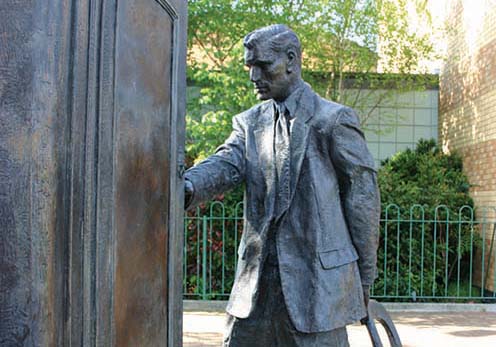We would all like to live in a simple and straightforward world, wouldn’t we? I was listening to my daughter earlier today. She has been home since just before Christmas and is now getting ready to go back to university. In contrast to other years, she has barely seen her friends. There was talk of going for a walk but given the Covid restrictions they were aware that five of them meeting up, even outside, just wasn’t a good idea and didn’t give a good example. I have been so impressed with Méabh and her friends who like many other young people have been responsible and selfless, caring for others by drastically limiting their own contacts. For a while there was a narrative that young people were to blame for the spread of Covid and it created a negative energy where people vented their frustration by blaming young people – irrespective of whether that was justified.
We can all fall into the trap of labelling other people, deciding a particular group is the cause of our problems, seeing only the negative and effectively painting them all with the same brush. Something like that is happening in the first reading for this Sunday. Jonah has been sent by God to preach to the people of Ninevah and tell them that their behaviour is unacceptable. Jonah is so reluctant to do what God asks that he escapes on a boat, only to find himself thrown overboard and swallowed by a whale when the crew decide that he, Jonah, is the reason for their misfortune at sea. Jonah is spat up on dry land by the whale and God repeats his call, that Jonah should go to Ninevah. There seems little point refusing this time. So Jonah preaches and indeed must be quite the preacher because the people of Ninevah all repent and God listens, relents and decides not to inflict any punishment upon them. And Jonah is furious! It is actually quite comical just how much of a huff Jonah gets himself into. Why is he so annoyed? God is challenging Jonah’s simplistic view of the world. We can imagine Jonah shouting at God, “The Ninevites are bad! What are you at?” God however looks at the people of Ninevah, sees all that they have done wrong but recognises the good in them too and in his love for them he wipes away their sin and restores his friendship with them.
When we divide the world up into goodies and baddies we resist seeing anything that would complicate our perspective. We try to push reality into a simple, controllable framework. In reality that just creates harm. I was impressed recently listening to the writer David Baddiel talking about allegations that CS Lewis was anti-Semitic. Baddiel himself is Jewish and is currently writing a book about anti-Semitism. As a child CS Lewis was his favourite author, inspiring him and firing his imagination. What now then if his childhood hero is shown to have feet of clay? Baddiel rejected the idea that CS Lewis’ work should be removed from libraries and taken out of the hands of young readers. He did not dispute the fact that CS Lewis expressed some deeply offensive, anti-Semitic opinions but ‘cancelling’ CS Lewis was not the answer. Instead Baddiel suggested, we need to be able to live with ‘cognitive dissonance’. By this he meant we need to be able to live with the complicated reality that someone can do wonderful things – such as write fabulous books – and also do something terrible – like be anti-Semitic. Those two realities can create a tension within us. We are robbed of the simplistic notion that CS Lewis has to be either a hero or a villain but living with such tension and complexity is the most honest and mature approach.
Jonah wanted life to be simple. If he had to go to Ninevah then he wanted those bad Ninevites well and truly punished. It was all a learning curve for Jonah as much as it was for the people of Ninevah. Living with that complexity is a learning curve we probably all need.


 Bairbre Cahill
Bairbre Cahill
